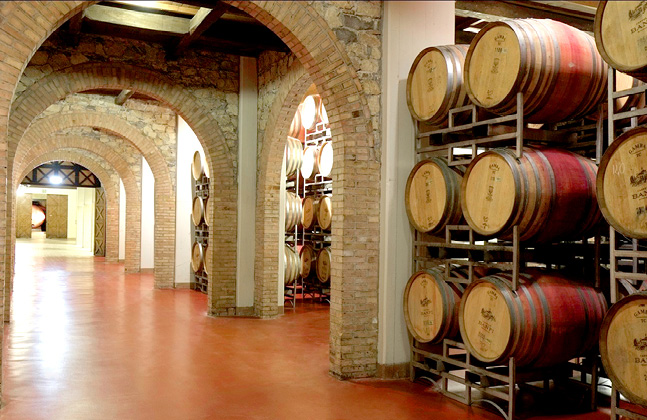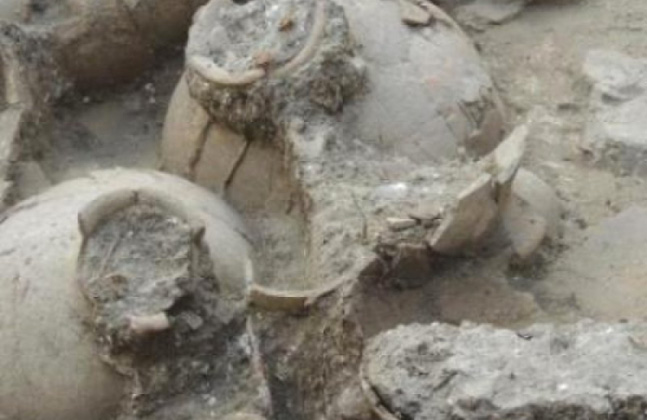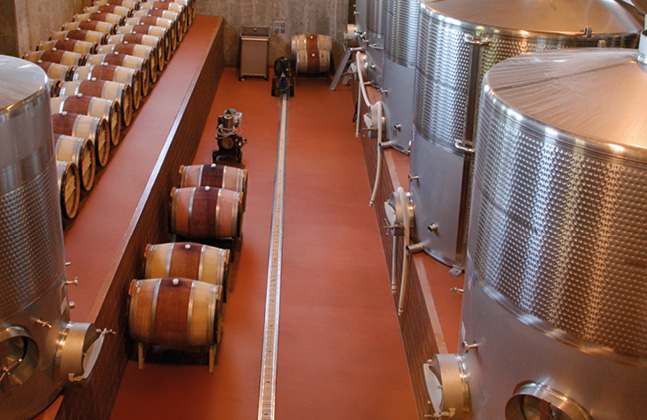Vintage wines are lauded as precious and expensive collectables – but even the oldest have been put to shame with the discovery of dozens of 3,700 year old wine jars!
Archaeologists have recently unearthed what they believe to be the oldest wine cellar in the world. Trapped beneath the earth in Israel since 1,600 BC it was found to contain over 40 jars that would have held the equivalent of 3,000 bottles of wine.
The discovery was made whilst excavating a palace in Tel Kabri, a city built by the Canaanites around 1,700 BC in what is now present day Israel. It is significant as a wine cellar of this age and size has never been found before.
Unfortunately none of the wine survived the millennia, but oenophiles can be sure that this is what the jars held, as a chemical analysis of the fragments confirmed the presence of key wine ingredients such as tartaric and syringic acids along with other common wine ingredients of the time such as honey, mint, cinnamon bark and juniper berries.
The Canaanites were clearly wine fans and had gone to great lengths to ensure that their wine was properly stored – a concern that modern wineries are still wrestling with today.
We worked with a leading wine cellar, Castello Banfi in Tuscany, who, like the ancient wine lovers, wanted to protect their produce for the future. Whilst the Canaanite cellar was likely buried by an earthquake or similar ‘violent event’, modern wine cellars are much more likely to be compromised by bacteria build up spoiling the wine during production or storage.
A recent study of eight US wine cellars identified the floors and drains as the sites most likely to be contaminated, and even the cleanest facility was at risk of wine spoilage if the floor was dirty.
To counter this, winery floors need to be smooth, easy to clean and very hard wearing. Wine cellar floors are faced with frequent exposure to corrosive chemicals, heavy traffic and humid conditions, all of which can deteriorate an unprepared floor, and will particularly eat into an uncovered concrete substrate. Cracks and splits are ideal places for germs to accumulate, meaning that eroded floors are not only unsightly but also potential sites of significant bacteria build up.
The Castello Banfi had Flowfresh HF installed, as the polyurethane flooring solution provides a seamless and highly durable finish able to cope with the demands of a wine cellar. It also incorporates a Polygiene® additive that inhibits the growth of up to 99.9% of bacteria! Drastically reducing the risk from contaminants.
With a bit of luck the Castello Banfi wine cellar will now be strong enough to be around for archaeologists in another few thousand years…
If you’d like to find out more about how to protect a wine cellar with resin flooring solutions we’ve created a whitepaper that’s available to download from here.
Photo of the jars: Courtesy Eric H. Cline, George Washington University.







